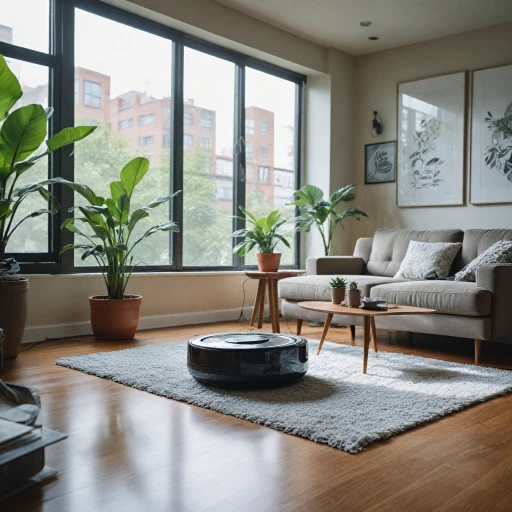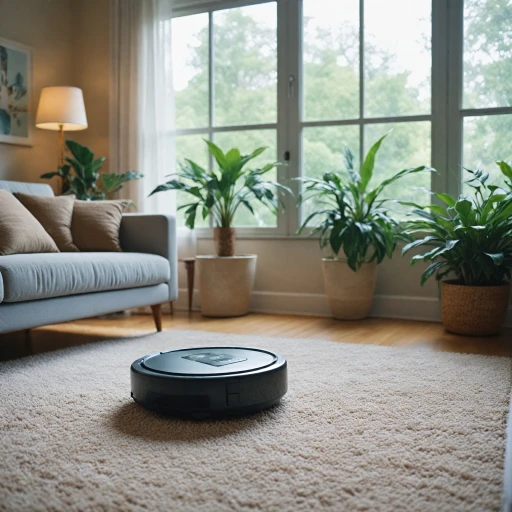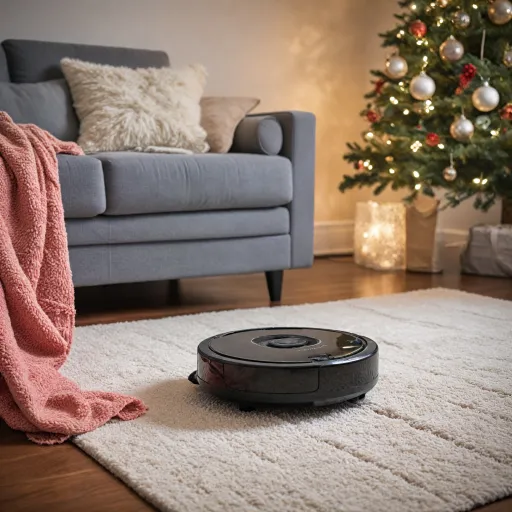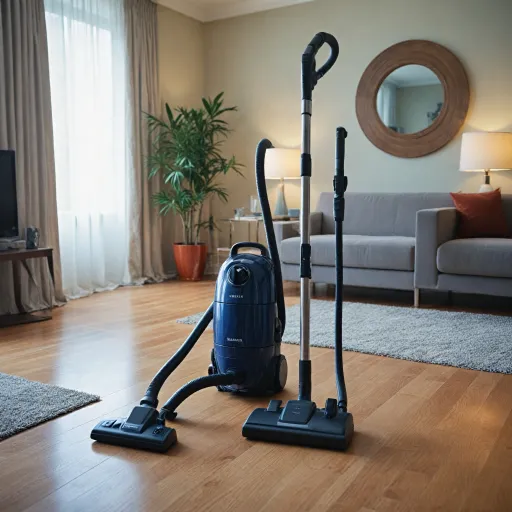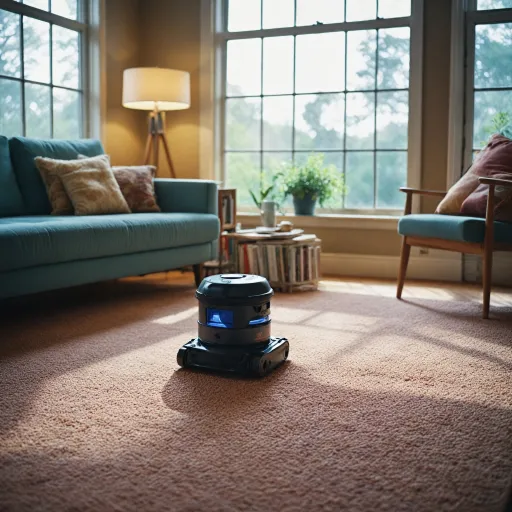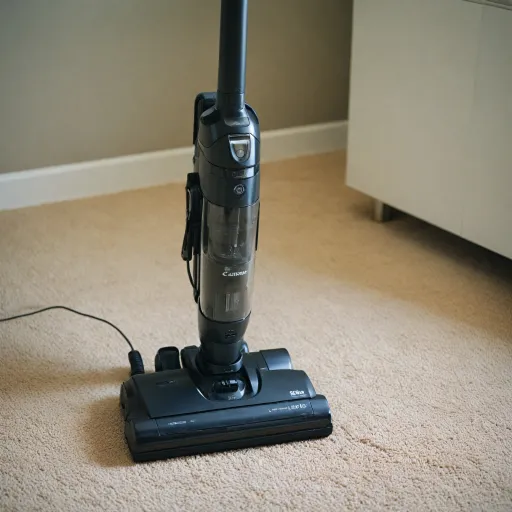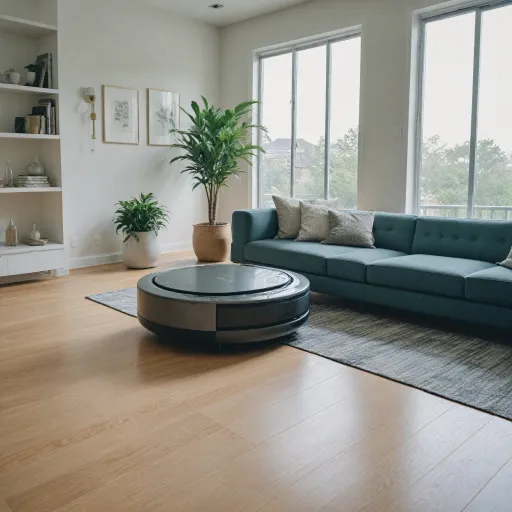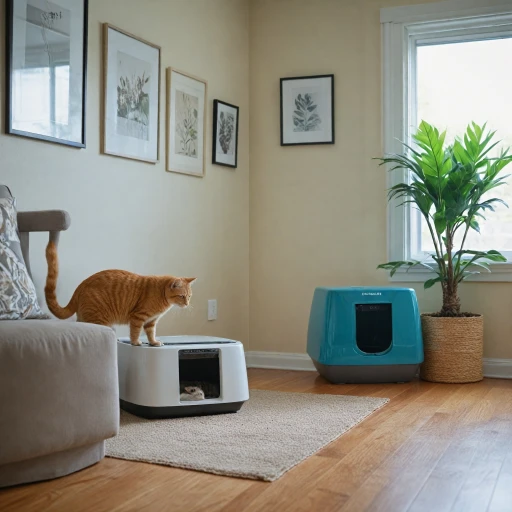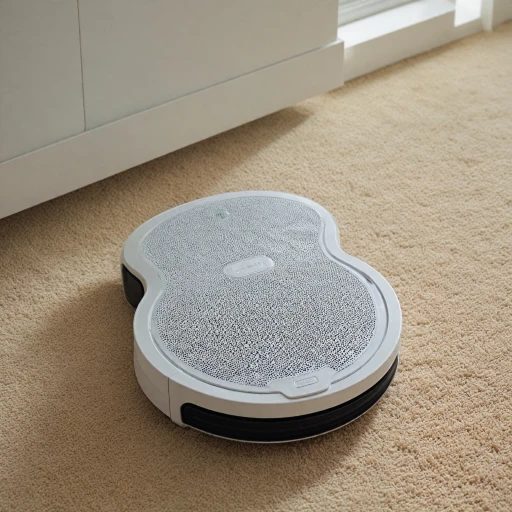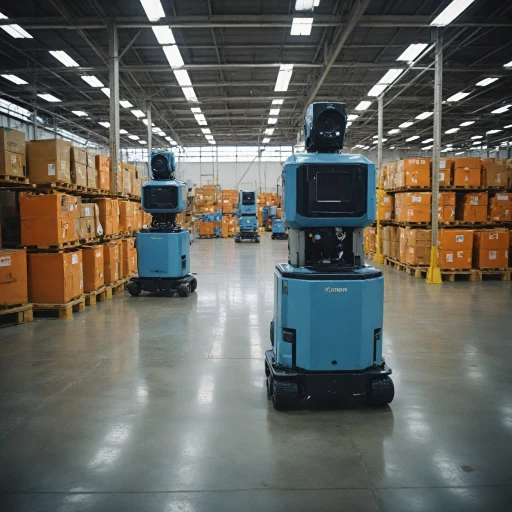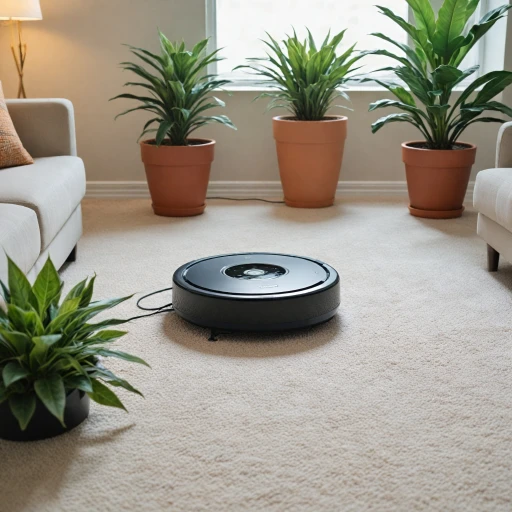
What is a HEPA Filter Cassette?
Understanding HEPA Filter Cassettes
HEPA filter cassettes play a crucial role in the efficient functioning of robot vacuums. The term 'HEPA' stands for High Efficiency Particulate Air, which refers to the standard filtration quality these filters provide. A HEPA filter cassette is essentially a component of the vacuum designed to trap small particles, including dust, pollen, and even certain types of viruses and bacteria. Comprising densely packed fibers, these filters are highly effective in capturing fine dust that other filters might miss.
One aspect that sets HEPA filter cassettes apart is their ability to maintain air flow while filtering out pollutants. This is achieved thanks to the pressure placed within the sealed units, ensuring that air passes through while capturing nearly all harmful particles. The filter's construction typically includes a combination of materials, such as activated carbon, to enhance odor and particle trapping capabilities.
In the world of robot vacuums, these cassettes are a non-negotiable for anyone serious about cleanliness and air quality. Certain models, including those equipped with the standard type HEPA filters like the H13, provide superior filtration, effectively turning your household vacuum into a basic air purifier. To gain further insights into the significance of H13 filters, explore the importance of H13 HEPA filters in robot vacuums.
Benefits of Using HEPA Filter Cassettes in Robot Vacuums
Advantages of Integrating HEPA Filter Cassettes in Robot Vacuums
When it comes to enhancing the cleaning efficacy of robot vacuums, HEPA filter cassettes stand out as a crucial component. These filter units play an essential role in improving air filtration and preserving indoor air quality. Let's unpack the benefits that they bring to the table.
- Superior Filtration Efficiency: HEPA filters are renowned for their high-efficiency particulate air filtration capabilities. They can capture fine dust, dust pollen, and even smaller particles such as viruses and bacteria. This level of filter efficiency ensures that your living area remains as free from allergens and contaminants as possible.
- Enhanced Air Quality: The use of a HEPA filter cassette in your robot vacuum can significantly improve indoor air turnover rate. By minimizing the presence of airborne particles, these filters contribute to a healthier home environment. Additionally, units equipped with activated carbon filter cassettes provide an extra layer of protection against odors and volatile organic compounds.
- Adaptable to Different Units: Modern robot vacuums often come with various filter types. Choosing the right HEPA filter cassette ensures compatibility with your specific vacuum model, whether it be a standard, mastercraft, or another type of cleaner, maintaining optimal air flow and cleaning performance.
- Durability and Efficiency: A well-maintained HEPA filter unit not only boosts cleaning efficiency but also extends the equipment’s service life. Regularly replacing filter cassettes according to manufacturer guidelines – considering aspects like weight sku and area of coverage – helps maintain a high standard of operation.
Incorporating the right HEPA filter cassette can transform the cleaning process of your robot vacuum. With benefits ranging from improved air quality to the efficient removal of airborne irritants, these filters are a valuable investment for health-conscious homeowners.
How HEPA Filter Cassettes Enhance Indoor Air Quality
Elevating Your Home Environment with Superior Air Quality
When it comes to maintaining a clean household, robot vacuums equipped with HEPA filter cassettes go beyond just eliminating visible dust and debris. These units excel at improving indoor air quality, a crucial aspect for anyone striving to create a healthier living space. A HEPA filter, or High Efficiency Particulate Air filter, operates on the principle of capturing tiny particles, including viruses, bacteria, and fine dust that regular filters might miss. This filtration efficiency drastically reduces indoor pollution, ensuring that the environment is not only clean to sight but also free from unseen pollutants.The Science Behind Enhanced Filtration
The HEPA filter cassettes contain intertwined fibers that form a mat designed to trap particles as airflow passes through. These filters achieve a high level of filtration efficiency, adhering to industry standards, ensuring that even the smallest particles are trapped. As a result, by retaining dust, pollen, and other allergens, these systems act as a fundamental air purifier unit.Creating a Barrier Against Common Pollutants
In addition to traditional HEPA filtration, many modern robot vacuums incorporate an additional defense mechanism with activated carbon elements. This layer further refines the filtration process by neutralizing odors and capturing volatile organic compounds (VOCs), thus enhancing the indoor air quality significantly.Choosing the Right Filter Setup
A significant aspect is selecting the correct type of filter unit that aligns with your specific environment needs. A sealed unit will efficiently contain particles and prevent them from reentering the air stream, while a combination of HEPA filters and activated carbon can provide a comprehensive solution for urban and densely populated areas with added pollutants. To explore savings on high-quality robot vacuum options that feature advanced filtration systems, visit our savings guide for special offers.Choosing the Right HEPA Filter Cassette for Your Robot Vacuum
Selecting the Optimal Filtration for Effective Cleaning
When it comes to choosing the right HEPA filter cassette for your robot vacuum, several factors need to be weighed to ensure optimal cleaning efficiency and air purification. Understanding the needs of your home environment is crucial, particularly if you or your family members suffer from allergies or respiratory issues.
Firstly, consider the type of HEPA filter you need. There are several classifications, each offering varying levels of filtration efficiency. A Type HEPA filter captures fine dust, dust pollen, and smaller particulates like viruses bacteria that standard filters may miss. Evaluate your household’s air quality needs to select the ideal filter that fits your robot vacuum unit.
Another important aspect is the filter efficiency and capacity of your vacuum’s unit. If you have a larger living area, you might opt for a filter cassette with a greater filtration standard, ensuring that dust and allergens are adequately captured without reducing the vacuum's air flow pressure. The efficiency of the filter should not tax the vacuum’s motor, preserving the longevity of the device.
Consider if the HEPA filter cassettes for your robot vacuum are equipped with activated carbon. These types of filters are particularly efficient in eliminating odors and can also trap additional airborne particles. The inclusion of activated carbon in a filter unit is beneficial in households with pets or for those looking to neutralize various odors.
Lastly, check the specifications of the HEPA filter by looking at credible reviews write or official manufacturer claims. While it’s easy to get swayed by marketing, checking reviews from verified purchasers can add another layer of assurance. You can also find practical comparisons of different filter units by reading a comprehensive write review of these components.
Always ensure your filter cassette aligns with the relevant dust, area, and filtration needs of your specific robot vacuum model, as well as the prevalent particles present in your home environment. This tailored approach will maximize both longevity and efficiency, ensuring a cleaner, healthier home.
Maintenance Tips for HEPA Filter Cassettes
Ensuring Longevity and Optimum Performance
Maintaining your robot vacuum's HEPA filter cassette is essential not only for optimum performance but also for the longevity of the filter itself. Regular maintenance will help ensure that the air flow and filtration efficiency are not compromised. Here are some tips to keep in mind:- Regular Cleaning and Replacement: Just like any other filter type, HEPA filter cassettes require regular cleaning. Over time, dust, pollen, fine dust, and other particles can accumulate, reducing efficiency. Depending on the vacuum model, you might need to clean the filter every couple of weeks. Most manufacturers recommend replacing the filter unit every six months or as specified in their guidelines.
- Inspect for Wear and Tear: Check the filter cassette for any signs of damage or wear, such as tears or holes that can compromise air purifier functionality. A damaged HEPA filter will allow dust particles to pass through, impacting indoor air quality.
- Assess Sealing: A tightly sealed filter unit is critical for maintaining pressure and ensuring that air passes through the filter and not around it. Look for any signs that the filter cassettes might not be seating correctly in the robot vacuum.
- Consider Humidity and Placement: When using your robot vacuum in areas with high humidity, ensure that the filter does not become damp as this can lead to mold growth. Additionally, storing your vacuum and filter units in a dry place when not in use is advisable.
- Check Review Guidelines: It's always a good idea to consult reviews from other users to learn about the longevity and efficiency of specific HEPA filter cassettes. Brands like Mastercraft provide various options that might be suitable depending on your needs.
Common Misconceptions About HEPA Filters in Robot Vacuums
Addressing Common Misunderstandings About HEPA Filters in Automated Cleaning Devices
There's a lot of talk about HEPA filters, especially when it comes to the topic of robot vacuums. Unfortunately, with this popular discussion comes a slew of misconceptions that need to be sorted out in order to make the most informed purchasing decisions. Here, we debunk some of the prevalent myths surrounding HEPA filter cassettes.
Misconception 1: All HEPA Filters Are Created Equal
While it's true that HEPA filters must adhere to a certain standard of filtration efficiency, not all HEPA filter units are the same. They come in various types, each with different efficiencies and purposes. For instance, some units might include an activated carbon layer to tackle odors and volatile organic compounds, which standard HEPA filters alone might not address.
Misconception 2: HEPA Filters Trap Everything, Including Viruses
HEPA filters are incredibly efficient at capturing fine dust, pollen, and even some bacteria. However, some people mistakenly believe these units can trap viruses as well. While HEPA filters do improve air quality significantly by reducing allergens and particles, their ability to capture viruses is limited due to the tiny size of these pathogens.
Misconception 3: HEPA Filters Don’t Require Maintenance
Another myth that floats around is that HEPA filter cassettes are maintenance-free. In reality, to maintain high filtration efficiency, regular upkeep of the filter is necessary. This involves cleaning or replacing the cassettes as recommended by the manufacturer to ensure continuous clean air flow and effective pressure management.
Misconception 4: Only Expensive Units Have Genuine HEPA Filters
Price does not always equate to quality. Many mid-range robot vacuums are equipped with true HEPA filters that provide excellent air purification. Research and comparisons, perhaps through reading reviews or expert evaluations, are essential in finding a highly effective yet cost-efficient HEPA filter unit.
Understanding these common misconceptions can lead to a healthier indoor environment and a more satisfying user experience with your robot vacuum. With the correct knowledge, one can choose an ideal filter cassette that meets specific needs efficiently.


